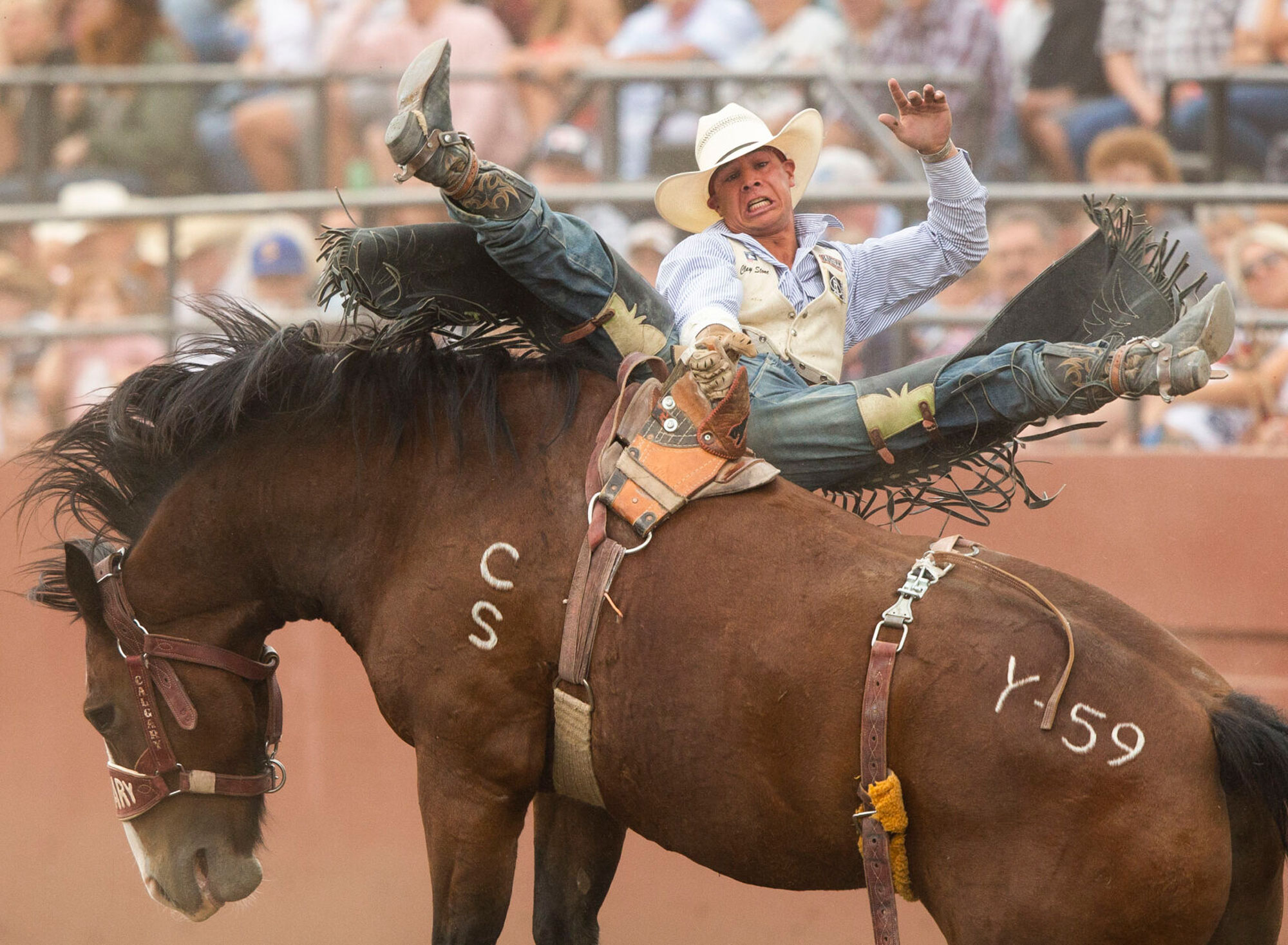

Kittitas Valley, home to ranches, orchards and waving fields of Timothy hay, is every bit as bucolic as it was a century ago when, in 1923, the Ellensburg Rodeo first sprang from the gates. The area had long been a meeting place for Columbia Plateau tribes. Local bands of the Yakama relied on the valley for trade, pony racing and other competitions and celebrations. Ranchers first ran their cattle here in the 1850s, bringing roundups, fiestas and local ranch contests, all of which culminated in the town’s first rodeo. Professor Emeritus Mike Allen, ’85, is a founding member of the Ellensburg Rodeo Hall of Fame. While not the first in the state, Ellensburg’s rodeo was the first to gain national significance, he says: “By 1924, it was on the map and became one of the most important rodeos in the Pacific Northwest.”
Today, professional cowboys like Clay Stone, pictured here in 2022, come back to compete every September. But it has never lost that small-town feel, thanks to volunteers and organizers like Rick Cole, ’70, who serves on the rodeo’s board of directors, and former student Davis/Yellowash Washines, a Yakama elder as well as a member of the Native American Advisory Board at the Burke Museum. Tradition has it that the rodeo doesn’t start until several members of the Yakama Nation have ridden their horses down Craig’s Hill and into the arena. “That’s the moment you’ve got to be in the grandstands for,” Allen says. “Then the rodeo can begin.”